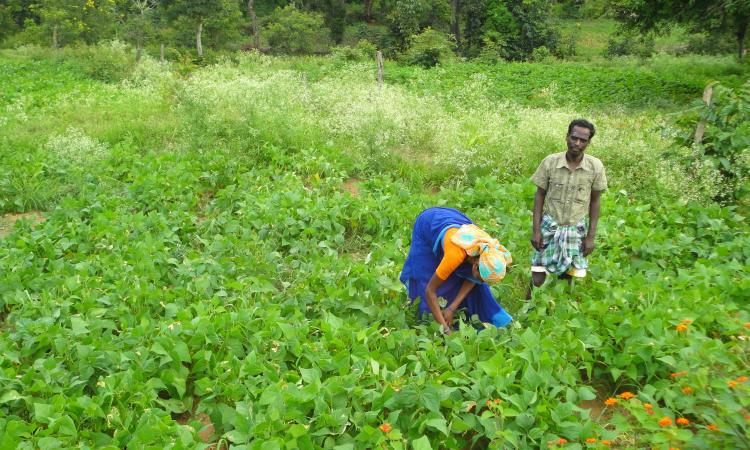
The dependence on natural resources is ever increasing, and so is the need to manage it better. Rural communities are relatively more dependent on crucial natural resources such as land, water and forest, the exploitation of which directly affects their livelihood. Realizing that dictating terms from the top down wasn't working, the government has shifted its focus from itself to the community to manage these vital resources.
The National Bank for Agriculture and Rural Development (NABARD) with the help of the German Development Corporation (GDC) has taken up the important task of improving livelihoods at the grassroots level by strengthening the management of key natural resources. It is in this context that the Umbrella Programme on Natural Resources Management (UPNRM) was launched in 2007-08.
What is the 'Umbrella' programme?
Any project that seeks to be supported under the UNPRM should be pro-poor, environmentally sustainable and led by the community with a need-based approach ensuring good governance.
“NABARD has been developing watersheds and implementing development programmes in rural areas for the past 2 decades. The UPNRM is a unique mix of a loan and grant programme for improving productivity of natural resources”, says NABARD official V.S.Balasubramanian. In order to encourage community ownership of the work taken up in a region, a gradual shift from giving out grants to loans has been envisaged.
The programme focuses on projects that link livelihood improvements, especially that of the rural poor with natural resource management. Projects such as the cultivation of medicinal plants, eco-tourism and supporting rural produce are taken up under the programme. While this ensures the sustainable usage of natural resources, participant families greatly appreciate the opportunity to generate extra income.
 Core functions of the programme
Core functions of the programme
While some of the core functions under the NRM umbrella include forestry, farming and soil and water conservation, the focus seems to be shifting towards the NRM+ themes such as value addition and market linkages that help in better marketing of the produce. The involvement of the private sector is welcomed in order to route investments in the rural sphere.
“DHAN Foundation has focused on improving the financial situation of underprivileged small, marginal farmers and the landless by supporting work on minor rain-fed tank irrigation”, says A. Gurunathan, Chief Executive of DHAN Vayalagam (Tank) Foundation. DHAN’s Kalanjiam Development Financial Services (KDFS) acts as a mediator between the NABARD and the beneficiary farmers. They accept and scrutinize applications from farmers groups and disburse the loan amount. The KDFS officials regularly monitor the activities of the group and track the repayment status.
How is the programme faring?
While the current status of UPNRM has been satisfactory, the need to scale it up to uncovered areas is deeply felt. Gurunathan feels that location-specific, need-based and flexible products need to be introduced in order to benefit a wider audience and an extended set of activities. Officials involved with the programme feel that convergence with government programmes has greatly helped in its outreach and scalability.
Hundreds of farmers left out of the formal banking system have now been covered and an increasing number of individual commercial organic farmers have cropped up. The numbers of successful small scale farm entrepreneurs (like the small scale cashew processors in Cuddalore district) is also on the rise.
With over 173 projects supported across the country, more than just natural resources seem to have benefited from the UPNRM.
/articles/umbrella-sustainable-growth